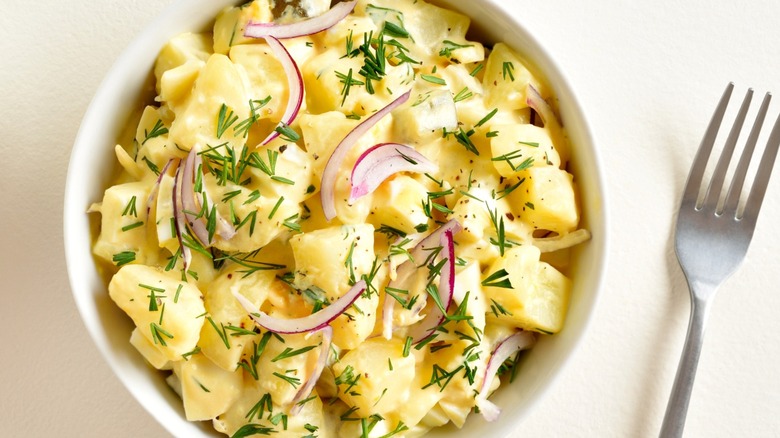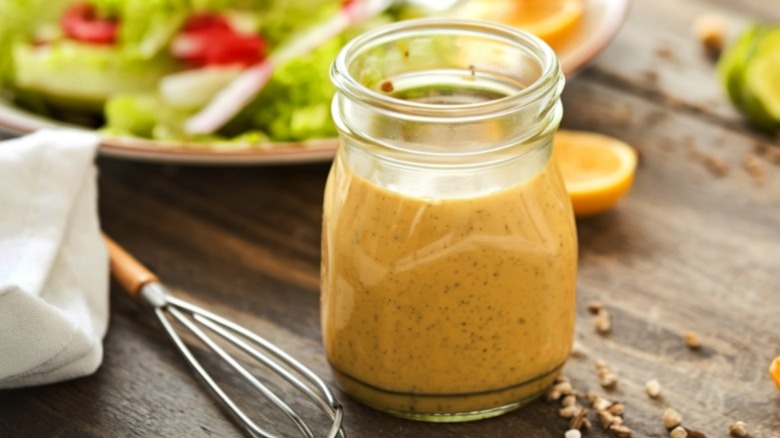Why Macaroni And Potato Salads Can Call Themselves Salads
The food world is full of conundrums, but few can top the head-scratching puzzle of a salad. How is it possible that some salads, like a classic Caesar, have leafy green lettuce leaves as the base, while other so-called salads, like coleslaw, contain crunchy vegetables mixed with herbs, oils, or vinegars? The ultimate curveball, though, is what I call "deli salads," like macaroni salad or potato salad. How do these creamy, starch-heavy mixtures fall into the salad category when they lack lettuce and rarely include vegetables?
It all comes down to how the word salad is actually defined. "Salad," the catch-all term we all know and love, comes from the Latin phrase hera salta, which means "salted herbs," and the Latin word sal, which means "salt." It makes even more sense to look at the long history of salads and how they've been consumed over the centuries — because many of them don't feature leafy greens, but they do feature dressings. Many ancient civilizations, including Romans, Babylonians, and Egyptians, enjoyed variations of salads, all of them featuring some sort of base ingredient tossed in sauce or dressing. So, as long as a mixture of lettuce, vegetables, or pasta is covered in a dressing (ideally heavily laced with salt), it can be called a salad, which is precisely why those unusual salads like macaroni or potato can get away with the namesake.
A perfectly balanced dressing is the key to any good salad
A salad isn't a salad without a dressing to bind the ingredients together, whether you're looking to make a more traditional leafy green salad or a potato salad. Luckily, making a homemade dressing is fairly simple. The easiest and most basic salad dressing is to mix olive oil, salt, and your vinegar of choice — think balsamic vinegar, red wine vinegar, or white balsamic vinegar. To step it up, toss in some freshly chopped herbs and spices, like dill, basil, parsley, cilantro, or garlic, and a bit of grated Parmesan cheese. While this dressing formula would work particularly well on a salad of greens, you could easily use it in potato salad as well, and maybe add in some bacon to go for a more German-style version of the classic dish.
To create a rich, luscious dressing like good old ranch or a Green Goddess dressing, you'll need to use buttermilk or Greek yogurt, a bit of lemon to add tart acidity, and fresh herbs and spices. Non-lettuce based salads like potato or macaroni typically have dressings that look a little different, but they most often involve some mixture of mayonnaise, mustard, seasonings, fresh herbs, and perhaps a little bit of vinegar for acidity and tangy flavor. You can ultimately dress your salads however you'd like, but so long as they are indeed dressed, you can feel confident calling it a salad (even if it is a big bowl of potatoes).

